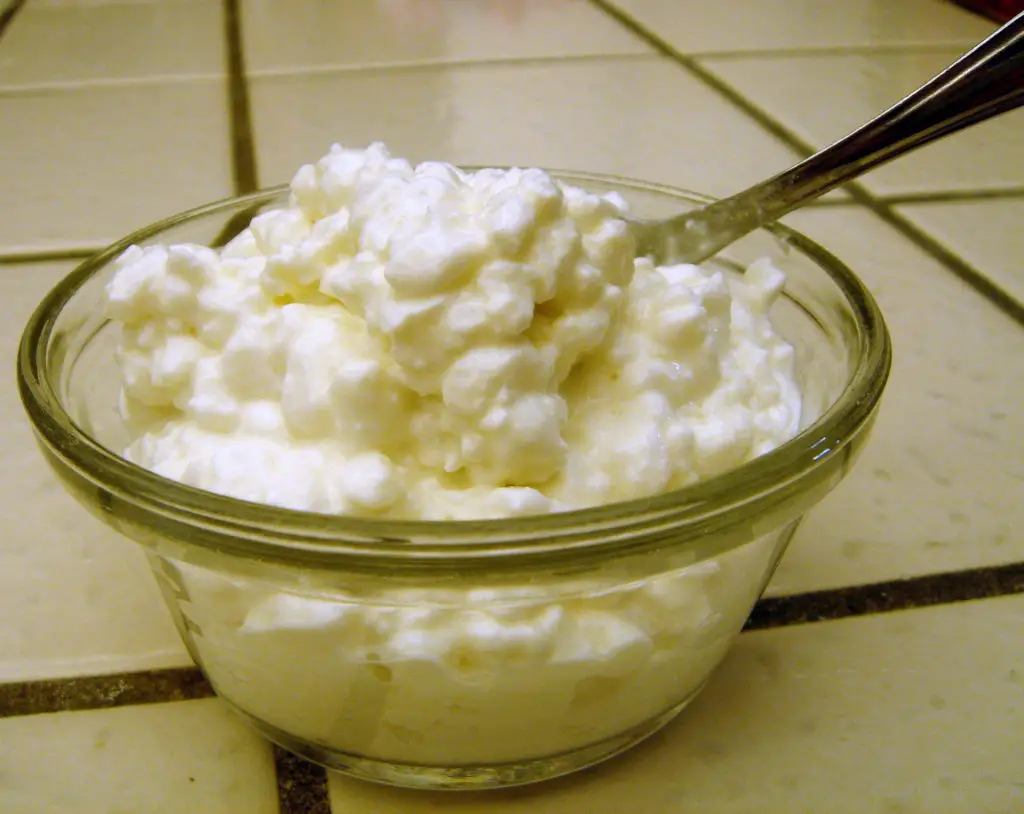Full-fat cottage cheese is believed to have an advantage over lower fat cottage cheese because it is said to have the fewest fillers. However, this is not often the case. Many full-fat varieties have the same ingredients as their lower fat siblings. Ingredients typically vary by brand but not much with products within the same brand. While lower fat cottage cheese products have reduced fat and calories, they actually may not be as effective in weight loss as full-fat varieties.
The emergence of full-fat dairy as the best type of dairy came into recent prominence largely from the Paleo movement. Although dairy wasn’t in existence during the Paleolithic era from which the diet is based, it is accepted by many as an acceptable Paleo food. Studies have found that eating full-fat dairy actual results in individuals with a lower body weight compared to those consuming low-fat products. The belief is that full-fat cottage cheese will keep your stomach full for much longer than lower milkfat choices like 1 percent or 2 percent.
While some evidence does suggest that full-fat dairy does not contribute to weight gain, full-fat foods do carry the most calories per serving. Calories still matter in the dairy world and everywhere else. For example, let’s say you are a 5’2″ female that currently weighs 110 pounds. If you start a diet consisting of 3,000 calories of full-fat cottage cheese daily, you would eventually start to gain weight because you are exceeding your maintenance calories to stay at 110 pounds. A diet that allows for full-fat dairy should take into consideration the total daily calories consumed. You should avoid full-fat cottage cheese or other full-fat dairy products if you plan on eating excessive calories through other foods.
Additionally, full-fat cottage cheese does contain high amounts of saturated fat which are known to lead to cardiovascular disease or stroke. The American Heart Association recommends limiting your saturated fat intake to about 13 grams based on a 2,000 calorie diet. Full-fat cottage cheese has approximately 4 grams of saturated fat in a cup. You are intaking about 31% of your recommended saturated fats just by eating a cup of cottage cheese.
Cottage Cheese Nutrition Facts
| Cottage Cheese Type | Serving Size | Calories | Total Fat | Saturated Fat | Cholesterol | Sodium | Carbohydrates | Dietary Fiber | Sugars | Protein | Calcium |
|---|---|---|---|---|---|---|---|---|---|---|---|
| Nonfat, uncreamed, dry, large or small curd | 1 cup (not packed) | 104 | .42 g | .245 g | 4 g | 539 mg | 9.66 g | 0 g | 2.68 g | 15 g | 125 mg |
| Low-fat 1% | 1 cup (not packed) | 163 | 2.31 g | 1.45 g | 9 g | 918 mg | 6.15 g | 0 g | 6.15 g | 28 g | 138 mg |
| Low-fat 2% | 1 cup (not packed) | 183 | 5.13 g | 2.79 g | 27 g | 696 mg | 10.76 g | 0 g | 9.04 g | 23.62 g | 251 mg |
| Creamed (Large Curd) | 1 cup (not packed) | 206 | 9.03 g | 3.6 g | 36 g | 764 mg | 7.10 g | 0 g | 5.61 g | 23.35 g | 174 mg |
| Creamed (Small Curd) | 1 cup (not packed) | 220 | 9.68 g | 3.9 g | 38 g | 819 mg | 7.60 g | 0 g | 6 g | 25.02 g | 187 mg |
If you are looking to find full-fat cottage cheese, almost all brands offer a full-fat product. Full-fat cottage cheese will often be labeled as 4 percent milkfat or creamed cottage cheese. It is recommended to look for products that contain the least amount of ingredients to avoid any unnecessary fillers, preservatives, or additives. Otherwise, just eat what tastes good to you.

